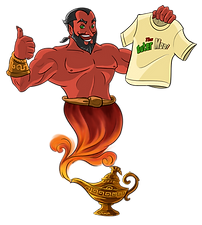
It all started in Messana, Livia, a loud, dusty place on Sicily’s shore that felt a world away from our fields. I stood with the Third Legion, my spear heavy in my hands, my heart thumping like a drum. I was just a farm lad, you know that—used to wrestling goats, not wars. But there I was, my new helmet pinching my ears, listening to the men talk of Carthage and her ships that ruled the sea like wolves. The Senate was in an uproar, they said, arguing if we should even go. Me, I didn’t know much about their debates, but the thought of Rome standing tall against such a power made me feel bigger than myself. I wanted to make you and Father proud, to come home with stories you’d tell your kids someday.
Livia, you know how Father used to talk of the wars that forged Rome, when he fought to bring the Italian tribes under her yoke—Samnites, Etruscans, all those fierce folk who bowed only after blood. He was never the same after those days, not since he lost his brother, your uncle Gaius, to a Samnite spear in the hills. I was just a boy then, but I remember Father coming home, his eyes hollow, his laughter gone. He’d sit by the fire, staring at nothing, and tell me, “War takes more than it gives, Lucius.” Yet here I was, signing up for the legions, chasing the same glory that broke him. Never had our legions left Italy’s shores, never had we dared fight across the sea. The water was Neptune’s realm, and we were sons of Mars, bred for dust and iron, not waves. Old Titus, a grizzled centurion, spat in the dirt and growled, “The sea’s no place for a legionary. Mars doesn’t march on water.” But we were bound for Sicily, to face Carthage, whose ships moved like they were born of the tide. I’ll tell you true, sister, by the war’s end, many of us whispered prayers to Neptune, for without his mercy, I wouldn’t be writing you now. That’s a story for later, though—let me tell you how this endless war began.
The trouble started with the Mamertines, a rough lot who held Messana. Gaius, my mate in the ranks—he’s got a laugh that could lighten any march—told me their story one night by the fire. “They’re no better than bandits, Lucius,” he said, chewing on a crust of bread. “Used to fight for Syracuse, that Greek city down the way. Did their king’s bidding, raiding and such, till they got too big for their boots. Took Messana for themselves, and Syracuse sent ’em packing.” I half-believed him—Gaius loves a tale—but when I saw the Mamertines, all scars and swagger, I figured it was true. They looked like men who’d stab their own shadows for a coin. Now they were begging Rome to save ’em from Carthage, who wanted Messana for herself. I didn’t know if we were heroes or fools for answering their call.
When Consul Appius Claudius gave the order to cross the Strait, I swear, Livia, I felt like Aeneas himself, destined for greatness. The boats were rickety, creaking things, and the sea tossed us like a child’s toy. I’d never been on water before, and my guts churned worse than that time I drank Father’s sour wine. The older lads teased me, calling me “land-legs,” but I saw their hands tighten on the oars when we spotted the horizon. Carthage’s ships were out there, lurking like vultures. I kept thinking of your words, sister: “Glory’s a hungry thing, Lucius. Don’t let it eat you.” I pushed ’em down, but they stuck.
We landed in Messana at dusk, and the Mamertines greeted us like saviors. They shouted, waved us in, pressed wine and bread into our hands. For a moment, I felt like a hero, like I’d stepped into one of those songs the old men sing by the fire. My chest swelled, and I grinned at Gaius, who was already flirting with a local girl. But then, Livia, I heard it—low at first, then louder, rolling over the hills like a storm. Punic war drums. Carthage was coming. The wine turned sour in my mouth, and the bread felt heavy as stone. Gaius’ grin faded, and he gripped his shield, muttering, “Here we go, lad.” My pride was still there, burning hot, but fear was sharper, like a cold blade against my throat. I was no hero, just a boy far from our little house, wondering if I’d ever see you or Father’s fields again.
This is Lucius, your fool of a brother, once a farmer tending our little Aventine plot, now a man worn to a shadow by war’s merciless grip. My fingers tremble as I scratch these words on this weathered scroll, not just from age, but from the crushing weight of those twenty-three years fighting Carthage—years of blood, salt, and dreams that haunt my sleep like ghosts. I was eighteen, full of fire and folly, when Rome turned her gaze to that sea-queen across the waves, her sails gleaming with menace. Now, with gray streaking my beard and scars that burn when the wind turns cold, I write to you, sister, not for glory, but to unburden my heart. Oh, Livia, it shames me to confess—I can barely recall your face, the way you smiled as a little girl, tugging at my tunic in Father’s fields before I marched away. You were so young then, barely more than a babe, and these long years have stolen your image from me, leaving only guilt and a longing to see you again.

My dearest Livia,
